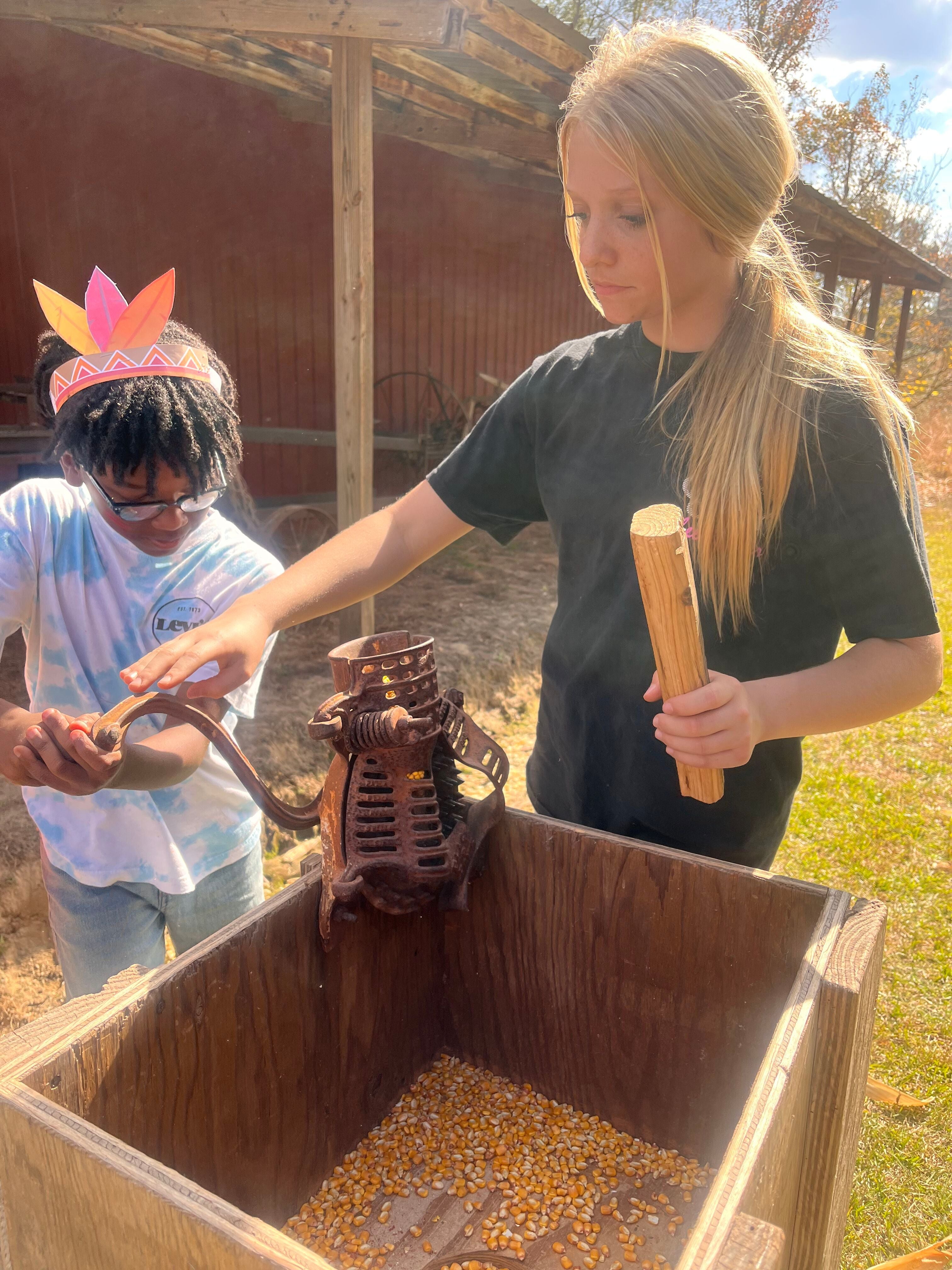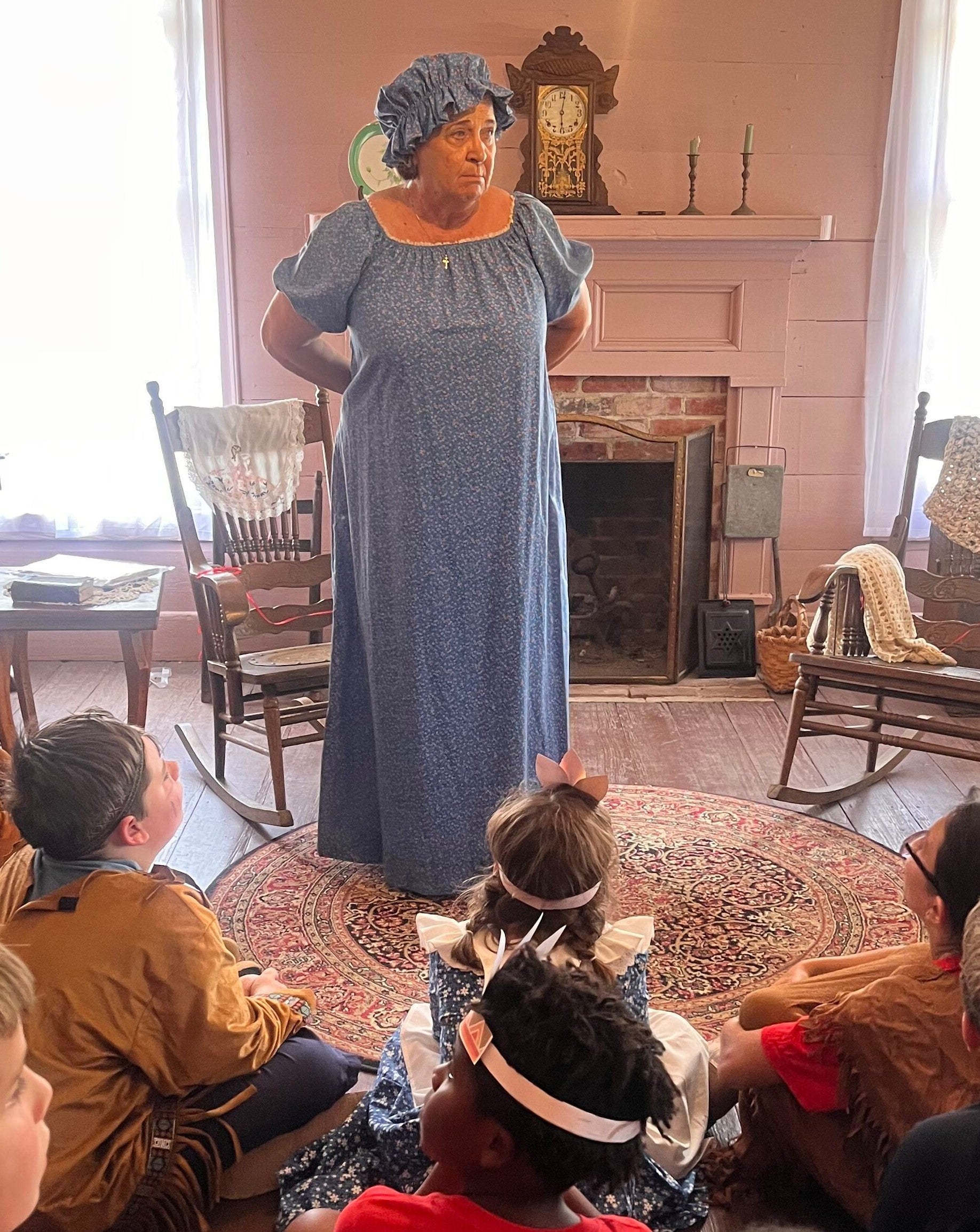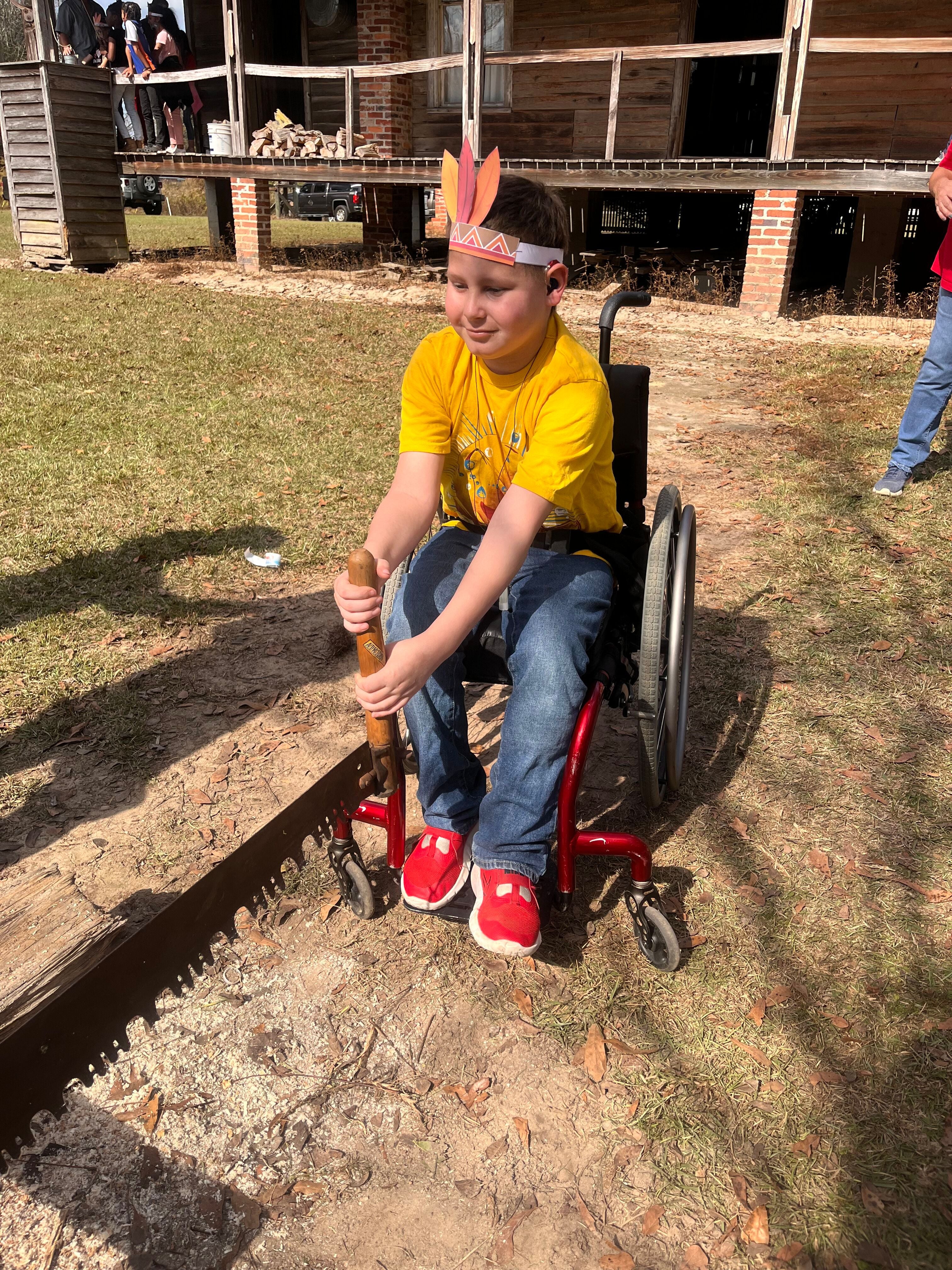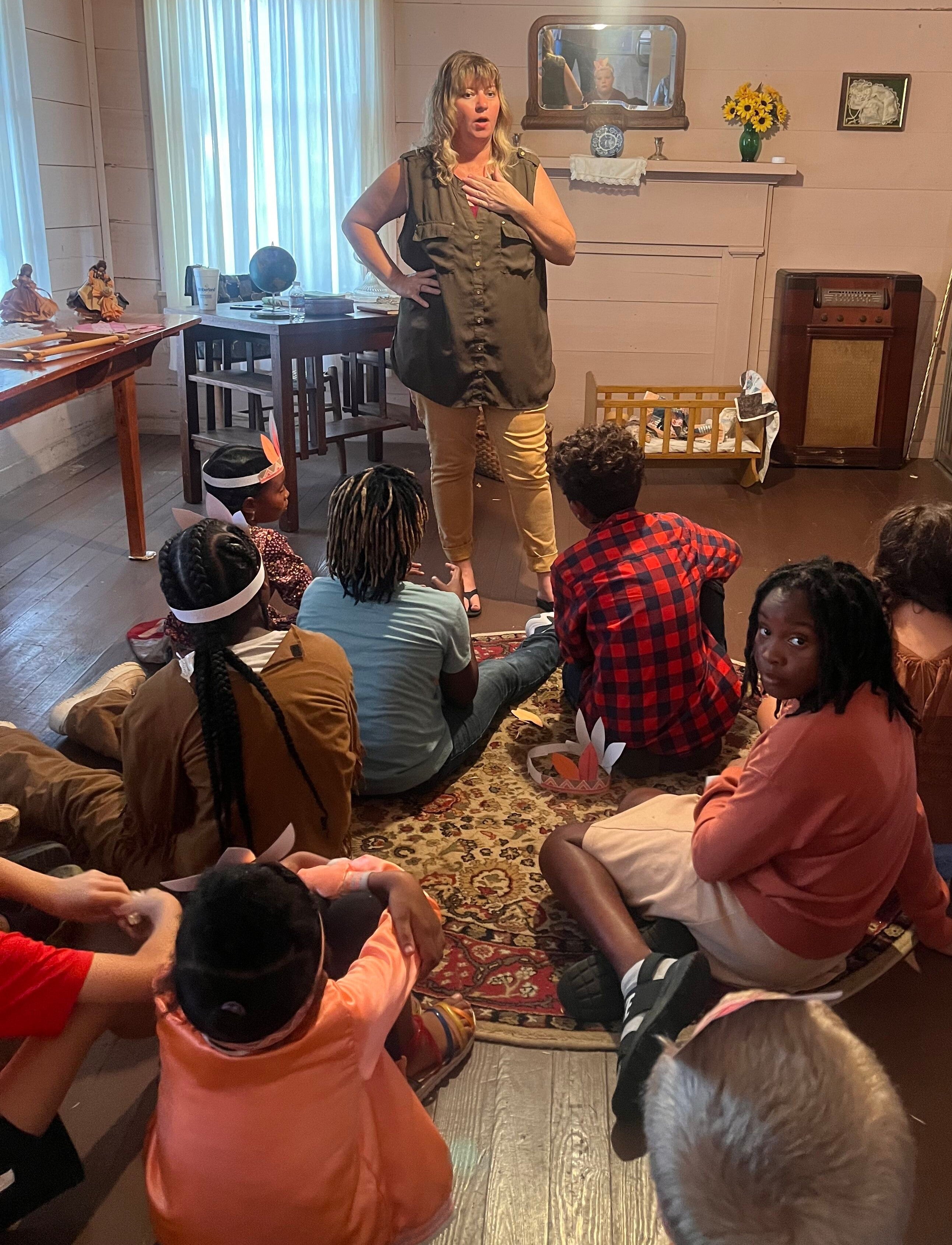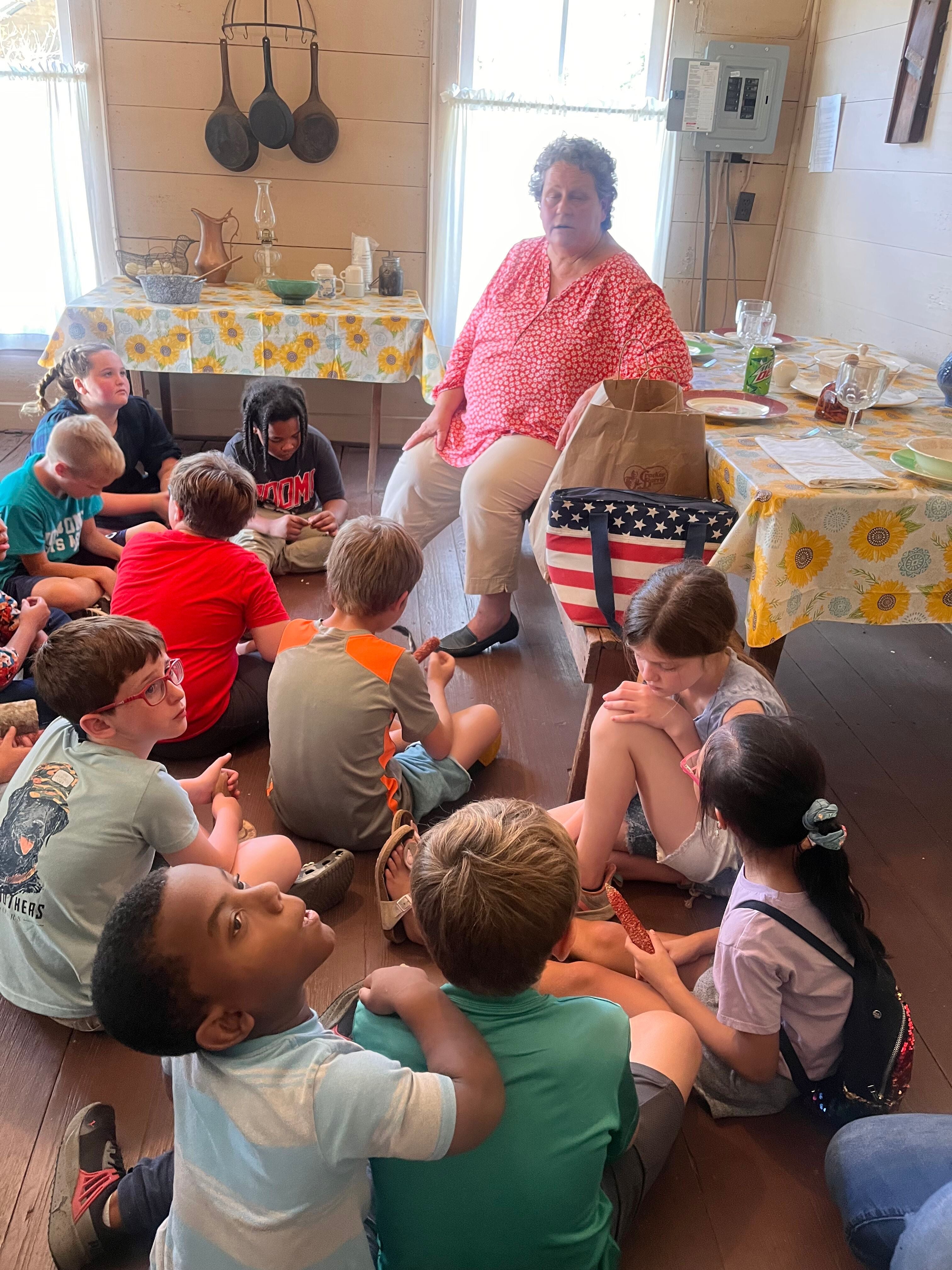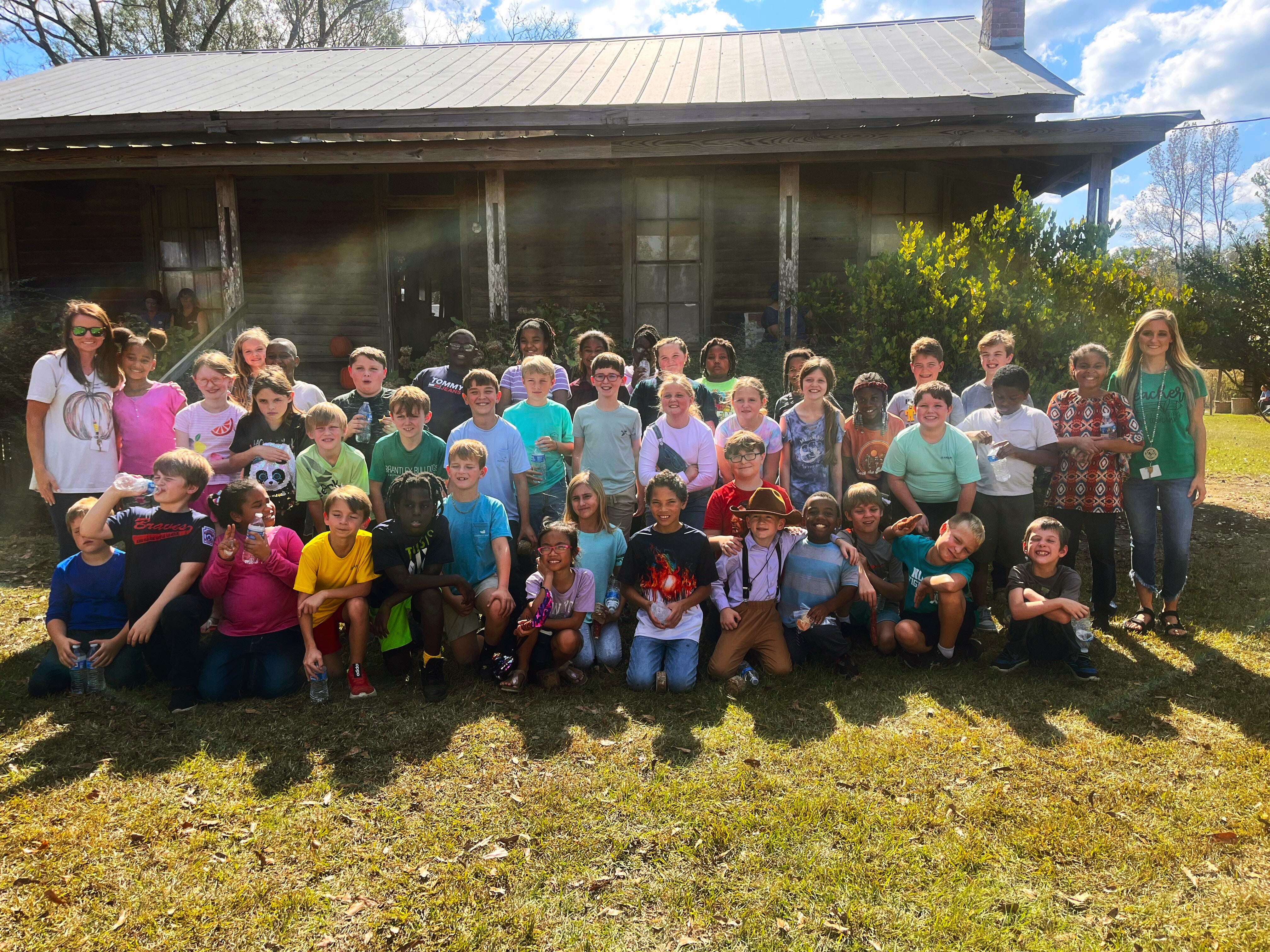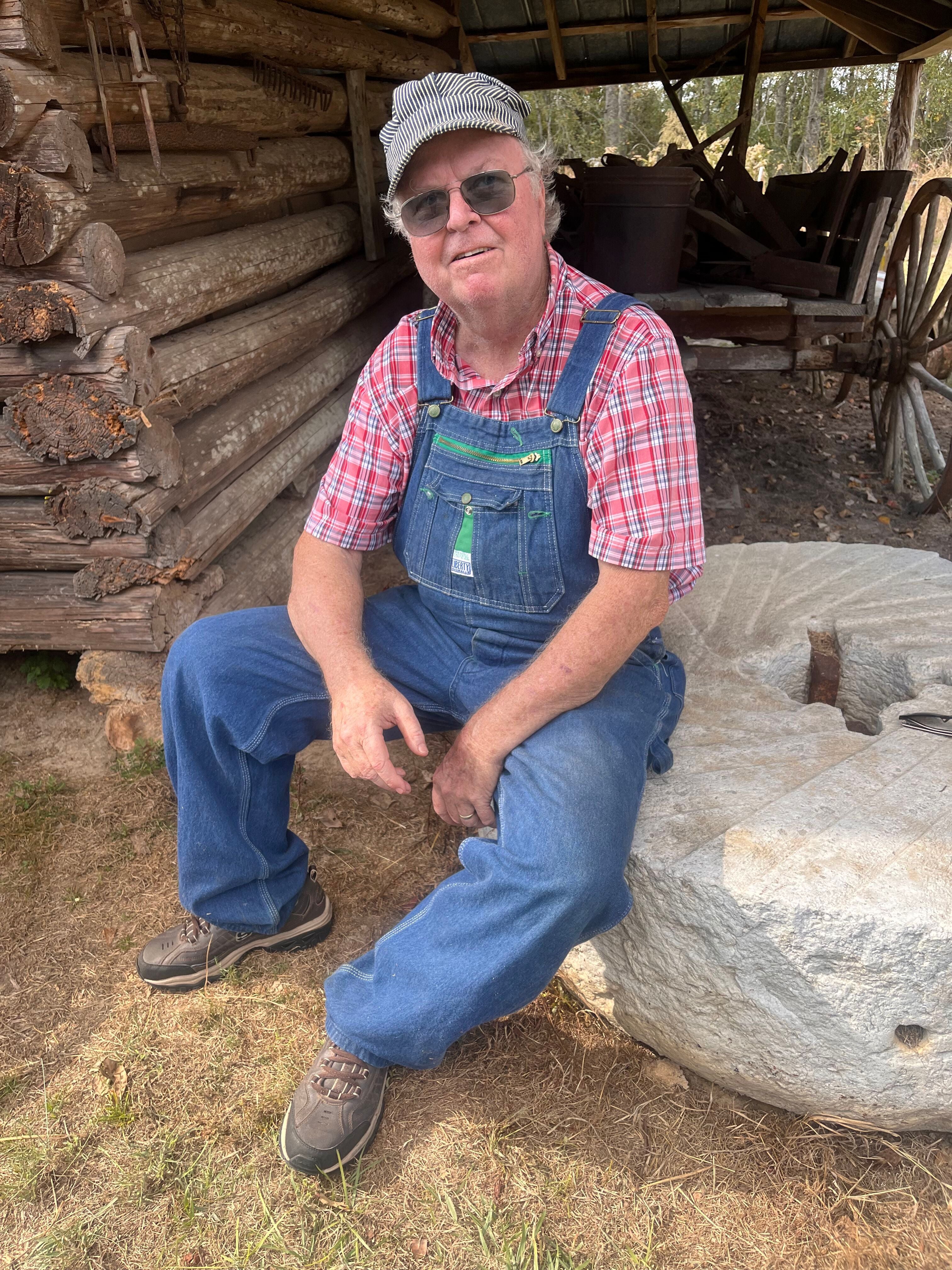Pioneer Day helps Crenshaw County students connect dots to their own local history
Published 2:47 am Thursday, November 17, 2022
he Crenshaw County Historical Society hosted Pioneer Day on Tuesday, helping local fourth graders connect the dots between the classroom and their own family’s history.
Organizers invite fourth graders from throughout the county to the museum on Airport Road each November and have held Pioneer Day for 31 years. Roughly 200 students attend each year.
“Fourth graders are studying Alabama history, and [Pioneer Day] enhances their ability to see and touch history,” said Recording Secretary and Treasure Pam Campbell. “We talk about what life was like, what people did to survive, how they grew and preserved their food, and made their own clothes.”
The museum is housed in a structure built in Rutledge around 1865 by James Hurt Howard, a farmer and Crenshaw County Superintendent of Education. The structure was donated to the society by Howard’s great grandson Donald Morgan and moved later to its present location.
Students attending Pioneer Day viewed implements of everyday life, like chamber pots, wood stoves, and pedal sewing machines. Many children also learned to use historical farm tools, like saws and corn shellers.
Most children, Campbell said, are curious about the food.
“They want to know how the stove works and how people cooked on it,” Campbell said. “They see checkers games and books and they want to know what people did for fun.”
Brayden Sasser said he enjoyed learning about how people used to cook.
“They didn’t have a refrigerator,” explained Sasser. “They had an icebox instead and they grew their own food and made their own soap.”
JP Gillum had never used a crosscut saw before visiting the museum but remembered hearing his grandmother talk about wearing old-fashioned clothes and using a lantern for light.
“This is more hands-on than classroom learning,” said Amber Eiland, 4th grade teacher at Brantley School. “Being able to visit and see what people used helps them learn more. They get to learn about where they are from and what happened in the places they live.”
Other local volunteers came out to help with the event too.
“One lady showed the kids how to make scrub brooms,” described Patsy Owens, who helped start the event. “We’ve made candles and potato starch.”
Owens grew up in a house much like the one students visit today, without electricity or running water, and shares her firsthand accounts of Crenshaw County history.
“The thing that astonishes the most is that there is no bathroom, that one can actually bathe in a pan, and that we used a chamber pot,” Owens explained.
According to Luverne teacher Faith McCoy, students see and touch items in the museum and begin to visualize how their ancestors once lived.
“We can talk about history all day long,” McCoy reflected. For them to be able to see it and do it, helps them relate that to what they’re learning and have a realistic view of what it really was.”
Campbell said children often ask if she knows their grandmother or great grandmother.
“These people we talk about are their people,” Campbell asserted. “I stress that it was a hard life. I tell them, ‘Look what you came from, people who survived and thrived.’ We don’t have plantations. That’s not what Crenshaw County was. But we have a rich and colorful history, and we are a tenacious group of people.”
The Crenshaw County Historical Society Museum is open free to the public and opens 10 a.m. to 2 p.m. on the third Saturday of each month.


